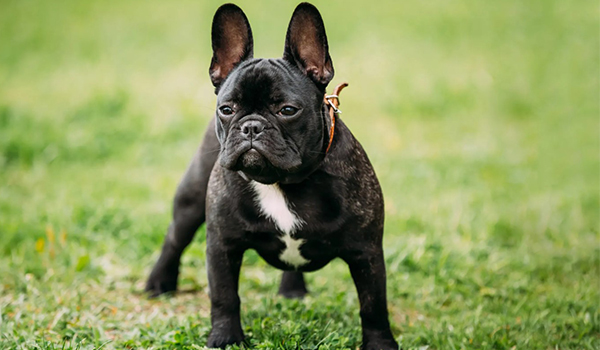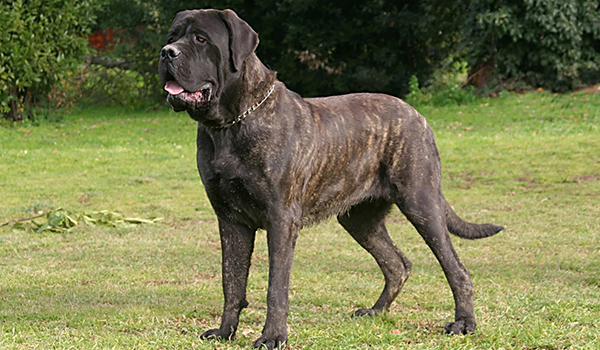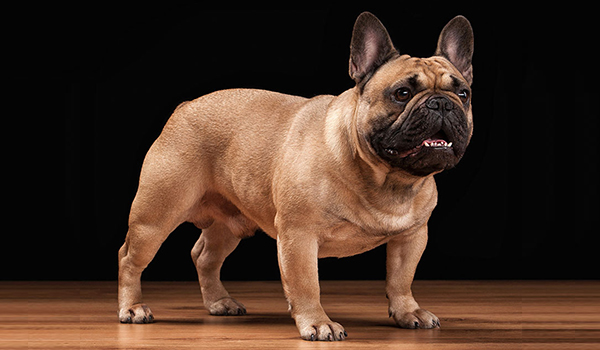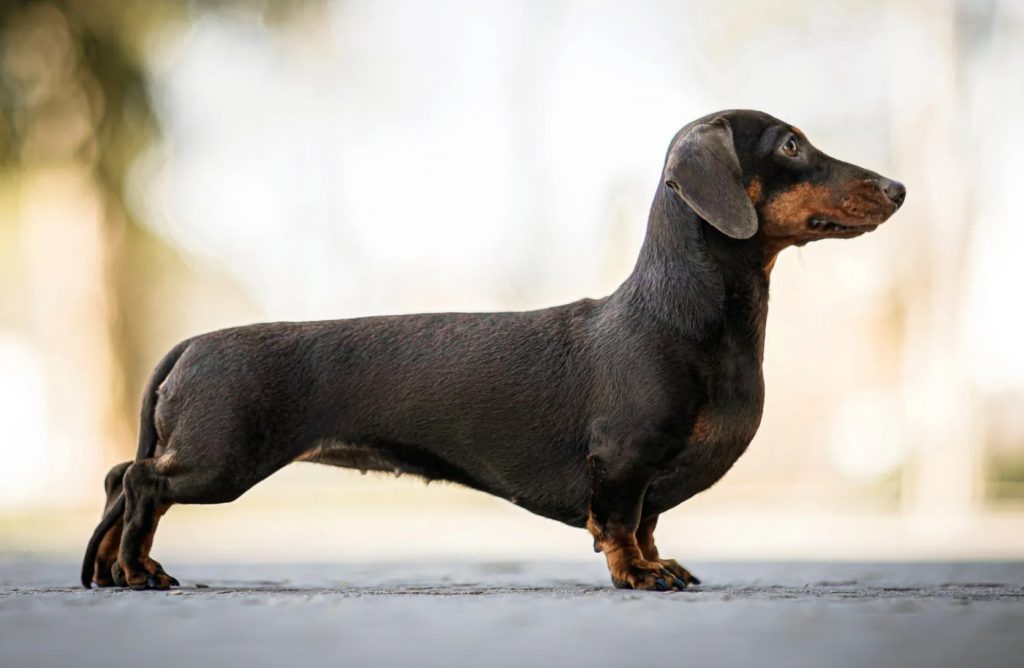
The Dachshund, instantly recognizable by its long body, short legs, and bold expression, is a breed full of personality and charm. Often called a “wiener dog” or “sausage dog,” this small package contains a surprisingly brave, tenacious, and loyal heart. Bred for a dangerous job, the Dachshund is far more than a quirky-looking companion; it’s an independent thinker with a loving, and sometimes stubborn, spirit.
This comprehensive guide will explore everything a future owner needs to know about the Dachshund, from their fearless hunting origins to their specific health and care needs, to help you decide if this big-dog-in-a-small-body is the right fit for your home.
Breed Overview
- Group: Hound
- Height: 5 – 9 inches (at the shoulder)
- Weight: Standard (16-32 lbs) and Miniature (11 lbs and under)
- Life Span: 12 – 16 years
- Coat: Three varieties:
- Smooth: Short, shiny, and sleek.
- Longhaired: Silky, slightly wavy, with feathering on ears, legs, and tail.
- Wirehaired: Harsh, thick, and wiry outer coat with a softer undercoat; distinctive beard and eyebrows.
A Brief History: The German Badger Hunter
The name “Dachshund” literally means “badger dog” in German. Developed in Germany centuries ago, these dogs were bred for the perilous job of hunting badgers, foxes, and other burrowing animals. Their unique anatomy was perfectly designed for the task: a long, low-slung body to enter tunnels, strong front paws for digging, and a loud, persistent bark to alert hunters above ground.
Their courage and determination were essential. The breed was miniaturized to hunt smaller prey like rabbits. Their popularity spread, and they became a beloved companion dog worldwide, though they have never lost their hardy, tenacious hunting spirit.

The Dachshund Temperament: Fearless, Loyal, and Spirited
The Dachshund’s personality is as distinctive as its shape. They are known for their bold and sometimes comical nature.
- Bold & Courageous: Dachshunds are famously brave and often completely unaware of their small size. They will not hesitate to stand their ground against much larger dogs or perceived threats.
- Loyal & Affectionate: With their family, they are devoted, often forming a particularly strong bond with one person. They love to cuddle and burrow under blankets.
- Clever & Stubborn: They are intelligent and quick to learn, but their independent nature (bred for making decisions underground) can make them stubborn. They have a mind of their own and will question commands.
- Playful & Energetic: They have a surprising amount of energy and enjoy playtime. Their hunting instincts make them love games that involve digging or chasing.
- Vocal & Watchful: They are excellent watchdogs with a loud, deep bark for their size. They will alert you to any little noise or visitor, which can lead to excessive barking if not managed.
Caring for Your Dachshund
Exercise: Moderate but Important
Despite their short legs, Dachshunds are energetic and require daily activity to stay fit and prevent boredom.
- Daily Requirements: 30-60 minutes of daily activity. This should include short walks, play sessions, and opportunities to sniff and explore.
- Protect Their Back: Avoid activities that strain their long spine. Do not allow them to jump on and off furniture or run up and down stairs repeatedly. Use ramps or steps to help them access couches and beds.
- Mental Stimulation: They enjoy puzzle toys, nose work, and learning new tricks to challenge their intelligent minds.
Grooming: Varies by Coat Type
- Smooth: Very low-maintenance. A weekly wipe with a grooming mitt is sufficient.
- Longhaired: Requires brushing several times a week to prevent tangles in the feathering.
- Wirehaired: Needs brushing a few times a week and professional hand-stripping or clipping every few months to maintain the texture of the coat.
- All Types: Regular nail trimming is crucial (their nails grow quickly), along with ear cleaning and teeth brushing.

Training: Consistency and Patience is Key
Training a Dachshund can be a test of wills but is very rewarding. Their intelligence works both for and against you.
- Start Early: Begin socialization and training as a puppy. Expose them to various people, sounds, and other animals to prevent them from becoming timid or suspicious.
- Housetraining: This can be challenging. Their small bladders and stubborn streak require a strict, consistent schedule with positive reinforcement. Patience is essential.
- Positive Reinforcement: They respond best to reward-based training with high-value treats, praise, and play. Harsh methods will lead to resistance.
- Manage Barking: Teach a “quiet” command from a young age to control their alert barking.
Health: What to Be Aware Of
The Dachshund’s unique body shape makes them prone to one very serious health issue.
- Intervertebral Disc Disease (IVDD): This is the most significant health threat. The cartilage between the vertebrae in their back can bulge or rupture, putting pressure on the spinal cord. This can cause pain, nerve damage, and even paralysis.
- Prevention is critical: Keep your Dachshund at a healthy weight, use a harness instead of a collar, and prevent jumping on/off furniture.
- Obesity: Excess weight dramatically increases the stress on their spine and joints. Portion control is non-negotiable.
- Dental Problems: Small mouths lead to crowded teeth, making them prone to dental disease. Daily teeth brushing is highly recommended.
- Patellar Luxation: A common condition in small breeds where the kneecap slips out of place.
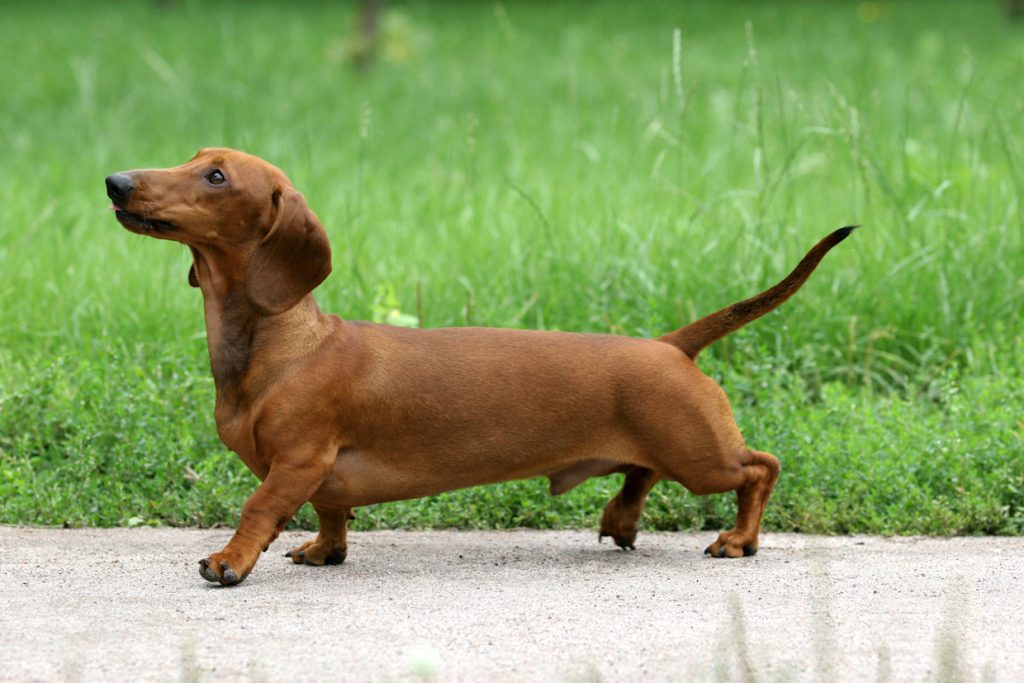
Is a Dachshund Right For You?
A Dachshund might be your perfect match if you:
- Want a loyal, brave, and entertaining companion with a big personality.
- Can provide a home environment that protects their back (ramps, limited stairs).
- Are committed to keeping them at a healthy weight.
- Have patience for a sometimes-stubborn but very clever dog.
- Don’t mind a vocal watchdog.
You might want to reconsider if you:
- Have very young children who might not handle them gently.
- Want a dog with reliable off-leash recall (their hunting instincts are strong).
- Are unprepared for the potential challenges of housetraining.
- Cannot commit to the lifelong vigilance required to protect their spinal health.
Finding Your Dachshund
- Reputable Breeders: Choose a breeder who prioritizes health, temperament, and a strong, well-proportioned build. They should be transparent about IVDD in their lines and breed for robust health.
- Rescue & Shelters: Dachshund-specific rescues are extremely common. Many dogs are surrendered due to back issues or owners being unprepared for their personality. Adopting an adult can be a wonderful way to provide a second chance.
Understanding the Cost: The initial purchase price from a reputable breeder in the U.S. typically ranges from $800 to $2,500+. However, prospective owners must be financially prepared for potential veterinary costs associated with IVDD, which can include diagnostics, medication, and even surgery, which can cost thousands of dollars. Pet insurance is a wise investment.
Bringing a Dachshund into your life means committing to a fearless, funny, and deeply loyal friend. In return for your care and protection, you will gain a companion whose courage and devotion are as long as their body.

